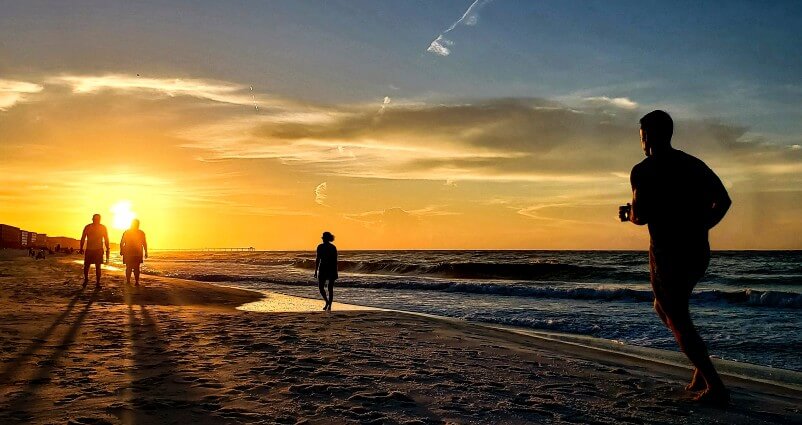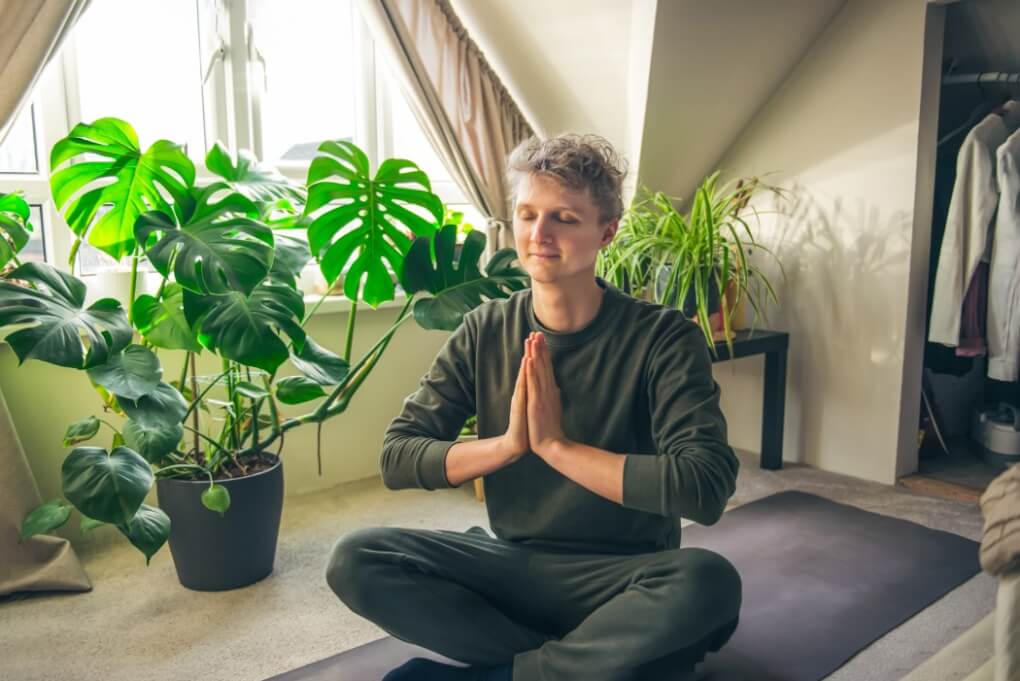How a Simple Life is Better
Our world today is a world of consumerism; the message we are constantly hearing is one of “always needing more but never having enough.”
Advertisements bombard us making us think and feel that we need to shop more, become more self-indulgent and, even eat more.
For me, this was a very usual way of life. It wasn’t evident in the past because I was just like everybody else and owned a lot of things as well. Moving away from the big city made me realize that it is not healthy to be surrounded by this consumer culture. I felt overwhelmed by all the things that we, as consumers, are pushed to buy.
I started questioning if it was essential to have all the different types of food offered to us every day. Is it indispensable to have five other brands of juice or ham?
In the local stores where I live now, I am lucky to find two or three brands of any product. Maybe this was because not many brands have arrived at the local market.
I do not believe that consumer culture is nonexistent in the tropics because I know that this is the global reality of our times. It’s just a little more evident once you get a contrast in less “developed” places.
People in the United States live way beyond their means, most of them having more debt than savings. People all over America are constantly buying more than they can afford or even need.
Many things criticize American cultures, like school loans, celebrity culture, and medical services. Still, there is a point at which we need to accept that we are also responsible for letting our society be this way.
This consumer culture is destroying our environment. It has also increased our anxiety and the need to compare ourselves with others and develop social and mental problems.
We think we are secure and happy when we can buy products. Still, all this excessive production is affecting our climate and ecosystems and ultimately decimating all our natural resources.
I have decided to live with less; I came to this conclusion mainly because I realized how much possessions and other things are not helping me focus on the crucial things in life. As the size of my home’s square feet increased, and the number of things stuffed into closets grew, more and more time and money were spent caring for them. When I came home, I started realizing the number of things I had, all the space that I needed to put it all away, how I cared so much about keeping everything, the costs that that meant in terms of area and rent.
As I started to pack all my belongings to move, I realized how many things I had been keeping for so long that I hadn’t even seen nor used for over a year. I was blown away by all the time and effort it was taking to move these things from one place to another.
I could also realize how this affected me in many different areas of my life to the point of feeling depressed. I started to reflect on this and began the path towards letting go of the nonessential.
I started experiencing the benefits of owning fewer things produced in very little time. I started feeling less distracted, less stressed out. I had more space and more energy to do all the things I had been neglecting over the years.
Now that I have gotten rid of everything I didn’t need, I feel freer to move around. I don’t want to return to my old life full of things I don’t need.
All my recent experiences have not only helped me to own fewer things, but they have also taught me to want less. You see, I have learned that wanting so many things has led me to a lot of suffering.
Now, I don’t want more than I already have. I am no longer comparing myself to others. I do not feel attached to money or possessions. I am happy with the things I own, discovering true generosity, and now I only dedicate my time to things that matter.
Have you ever seen how good it is to clean up your room? Or perhaps when you give away something you don’t need to someone else.
Getting rid of useless things in your home will clarify and invite you to simplicity. It creates a beautiful feeling of lightness and gives you more room mentally and physically.
Buy this idea, getting rid of things you don’t in your personal life and at work. Just think about how good your decisions are when your head is clear. How productive you can become when you have enough space to do things.
A lifestyle that promotes simplicity is minimalism and involves living a simple life according to fundamental principles. There are now many book essays and movie media about the journey towards a simple life.
The idea isn’t to focus on having fewer things; it is more about doing the things that matter to you the most and feeling free of clearing your life of the things that you don’t essentially need. This helps us create more space in our lives for meaningful activities like life experiences, contributions, growth, and even charity.
After living on the beach in a small town, I have started following the simple path, and I know I have begun to lean for the simple way of thinking. I want to make more room for the things that matter in my life, like friendship, yoga, nature walks, and other meaningful activities. Plus, it makes me realize the way my possessions were holding me back.
I’m not saying that I don’t want any more possessions. I keep some of my stuff, mainly the valuable and meaningful things. I own things like everybody else; the difference is that I focused on the things that kept me grounded, and surprisingly it wasn’t that much at all.
I am now evident in choosing material things, friends, or ideas. I find relationships, learning, making items, and growing more valuable than ever before.
I now enjoy collaborative work instead of just working for money helping people. I care about doing things that help them reach their true potential instead of barking instructions to coworkers—driving in the outdoors playing console games.
Each has different desires and interests; we all want other things, whether experiences, learning, or material possessions. They should create a sense of fulfillment and happiness rather than a fleeting moment, whatever these things may be. Whatever it may be should resonate with your values and your belief system.
- After our core needs are met, do material possessions bring us a real sense of security?
- Does social confidence come from the possession of material things?
- Have we stopped to think that if we had less of something, it could turn out to give us more?
- Do we truly enjoy having a lot of the same?
- How much happiness, fulfillment, and enjoyment do we have in our lives?
I don’t just mean material things, but also spiritual and mental. I wish to share some of how less has become more in my life with you. I have surrounded myself, which has created more mental physical space for me.
The things we surround ourselves with within the space we create for our lives impact us in ways we don’t even realize. Selling or giving away stuff we no longer need gives us a chance to have more space to do the stuff that we love halving less makes that easier for us.
Spend less, have more money.
Objects lose their value over time, and the feeling of spending more than we have sticks for a long time. Saving money will help you feel more positive about your financial situation. You will be prepared for a future problem and feel ready and secure.
Own fewer clothes have more closet space. How many pieces are there actually in your closet? Do they even fit in there anymore? Try finding out what is needed now; we are used to keeping clothes that don’t fit us anymore, seasonal clothing, excess shoe wear. Think about the things you haven’t used for a year, and only keep essential ones.
More miniature furniture for freedom.
This one was significant when I had to move this year. I had held on to my sofa and dining table for quite a few years. I had become very attached to them, but when I moved this last time, I hadn’t realized that most of the rental properties in the town I had moved to offer furnished apartments, which became a real problem while choosing a place to live.
Read more spend less time on social media.
This one hasn’t been hard for me because I’ve had a reading app since a couple of years ago. This has helped me keep from wasting endless time looking at someone else’s life and aimless news. I strongly recommend focusing on a good read that will help you learn something new that you are interested in and cultivate the reading habit, whether an app or an actual book.
I try to walk more.
I know that the car is beneficial when you live in a big city, but sometimes, we tend to drive even to the nearest stores. Living in a small tropical town helped me remember that walking to the store was healthy and a lot more fun. I started making new friends on my walks to the store and even started to use a bike again, which is more beneficial.
I started spending less and saving money on gas and more for other valuable and important things, like food and utilities.
I try to sleep more and feel less stressed out.
Remember that your mental health will directly influence the mental health of your children.
Stress is known to have adverse effects on our overall health, and it’s no surprise that stress can disrupt our sleep patterns. Living with someone who has to cope with a mental illness is also a challenge.
Stress can disrupt our sleep patterns and affect our health and have adverse effects on our daily lives. By suspending any stressful activity half an hour before I sleep, I feel better the following day.
You sleep better when you are not stressed or worried. How did you sleep during Covid?
A friend once told me to work smart, not hard. Have you ever thought that there are not enough hours in the day to accomplish all that you want to do? Do you ever feel tied up in endless office hours, unable to finish off all the work on the table?
I used to focus on the time it took to do things rather than what I could accomplish.
To use more time thinking about saving hours by coming up be more productive during work, try figuring out which have been working against you and create routines that helpless time and energy.
Try doing more and planning less.
We can get so caught up thinking about doing something that we lose time. Organizing a to-do list may sometimes be helpful, but it also can become a time-consuming task.
Trying to do a lot of things can be consuming and may lead you to end up doing a little bit of nothing. Doing anything can be scary and may show you to give up before beginning. Try to think about three important things and have the leverage and time to complete them; this will give you more security in doing focused tasks.
Instead of planning for a month or a year, try planning for a week or for a day at a time. This will give you realistic expectations and goals.
- Eat healthier, feel better!
I know this can be a challenging task, especially when working in an office or on the road, but you can eat healthier if you put your mind to it.
If you prepare food on your phone, you will save money, but you will also know what you eat.
Cooking at home will save you cash and allow you to have more control over what you put in your body. Try going through your kitchen to get rid of junk food and all the stuff you usually binge when you feel bored.
If you have better food in your kitchen, you will have better choices for lunch, dinner, and snacks.
Live a healthier life and forget about the diets.
Most trendy diets promise us that we can lose weight and have a perfect body.
Many people lose weight in the short term, but it’s usually the people who have restricted themselves too much, the ones who gain the weight back.
If you focus on a healthy lifestyle, you will automatically focus on the food and habits you need to have the physique you want. Add more natural ingredients to your diet by buying vegetables, fruit, and other staples to prepare clean meals. If you focus on healthy living, you will see positive results in the long run rather than short-term, non-lasting solutions.
Drink more water and less alcohol.
When I am more intentional about drinking less alcohol, I feel better and have a clear mind. I stopped drinking for five years and noticed significant changes in my lifestyle, savings, and health. Now I carry a bottle of water everywhere I go. It helps me keep hydrated and feeling well.
Learning how to deal with trauma is a huge piece of the healthy living puzzle.
I still love a glass of wine sometimes and when socializing with friends.
Finally, have a sense of gratitude.
I have learned that being grateful for the things I have, has freed me from constantly wanting more. Instead, I cherish the present moment. I still work toward reaching my goals and getting better at what I do. Feeling grateful raises my vibration, which helps me release good vibes to the world and those around me.




